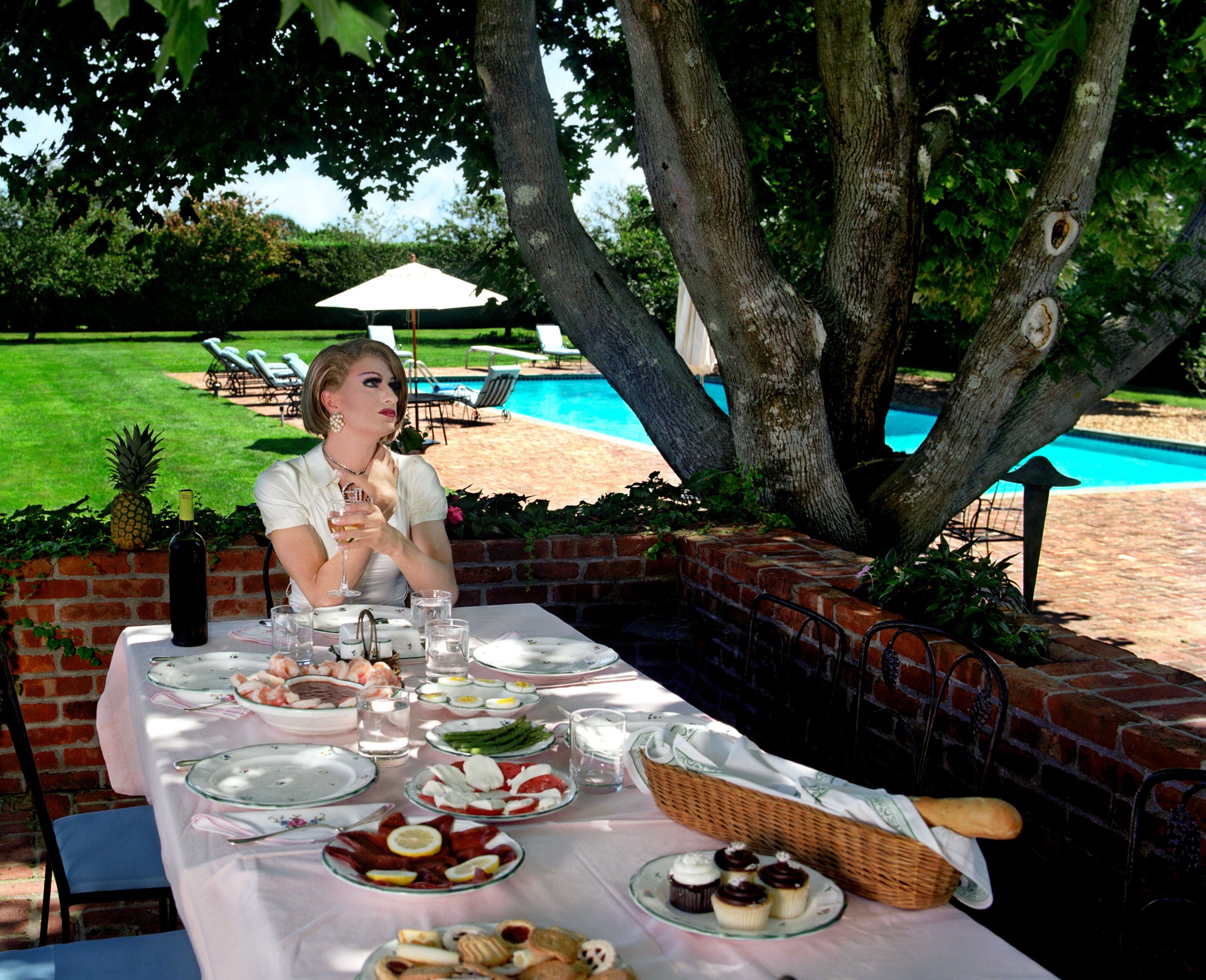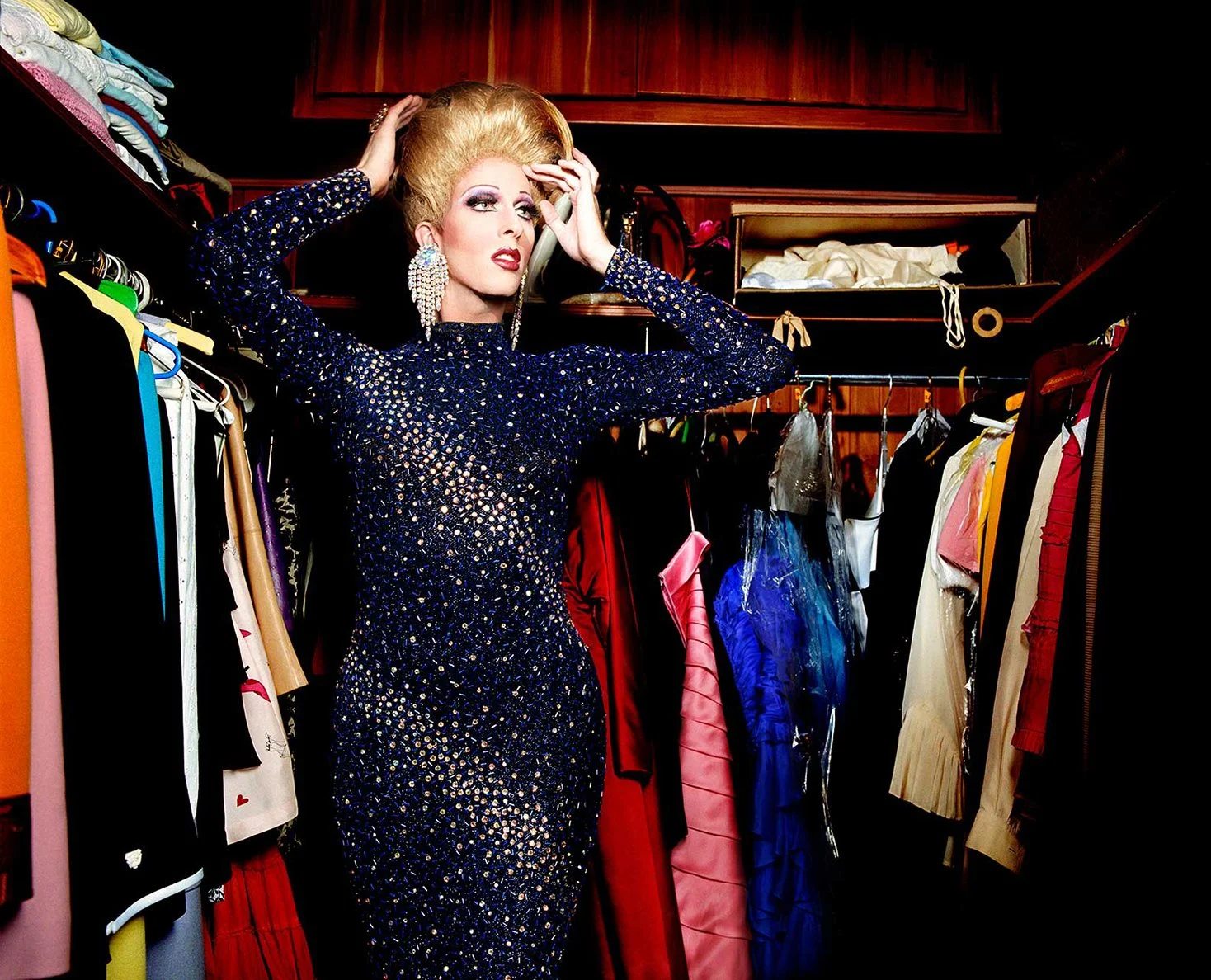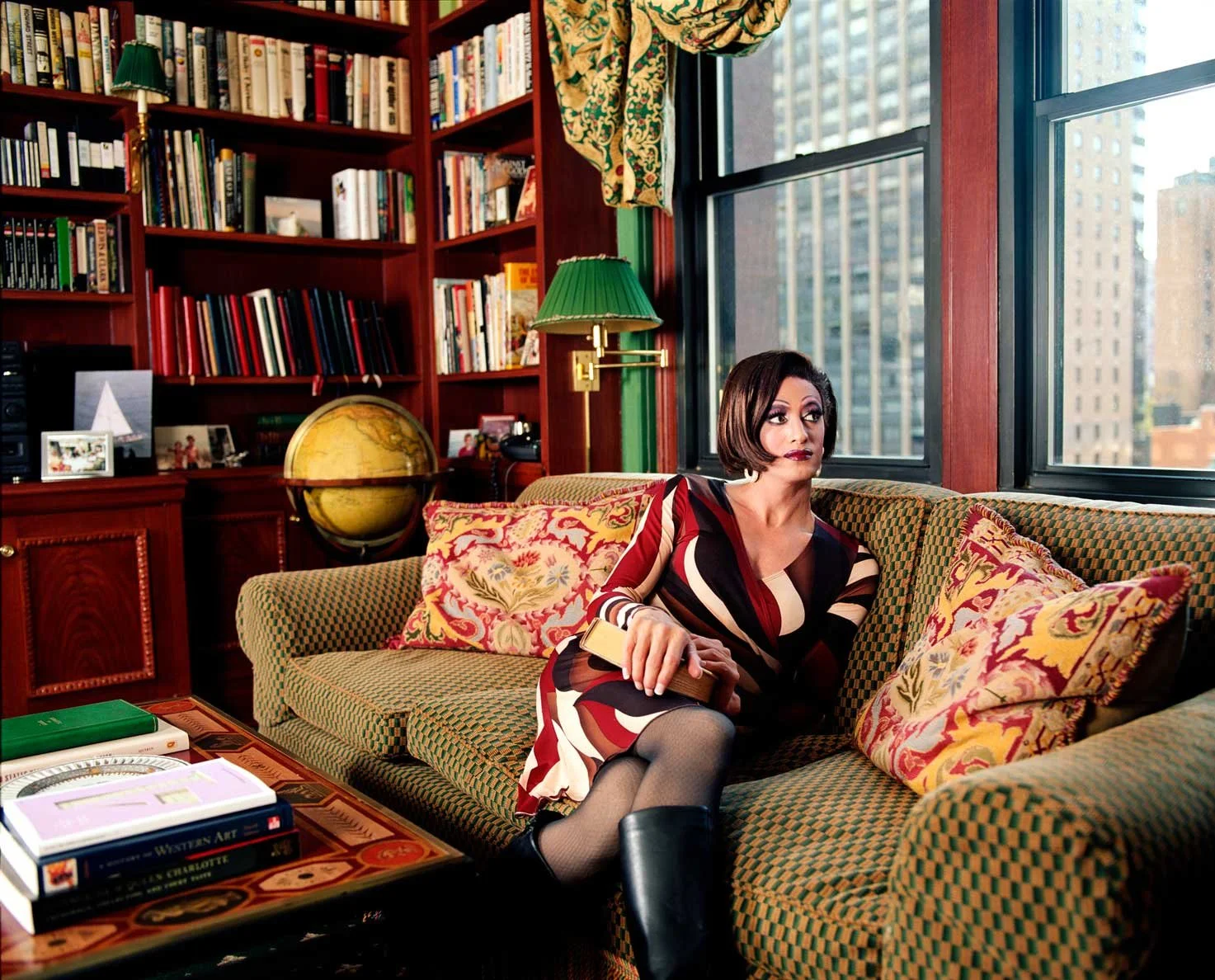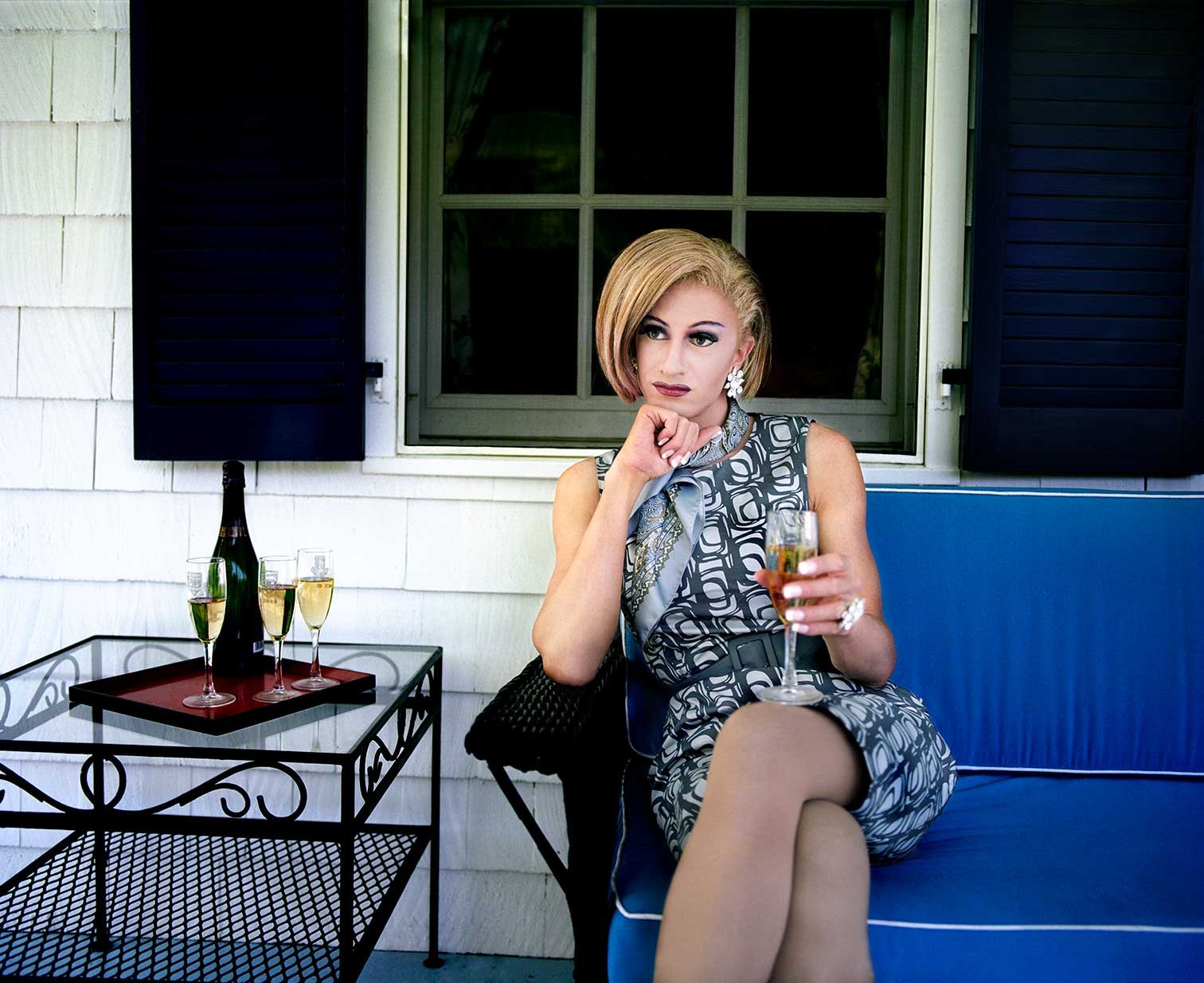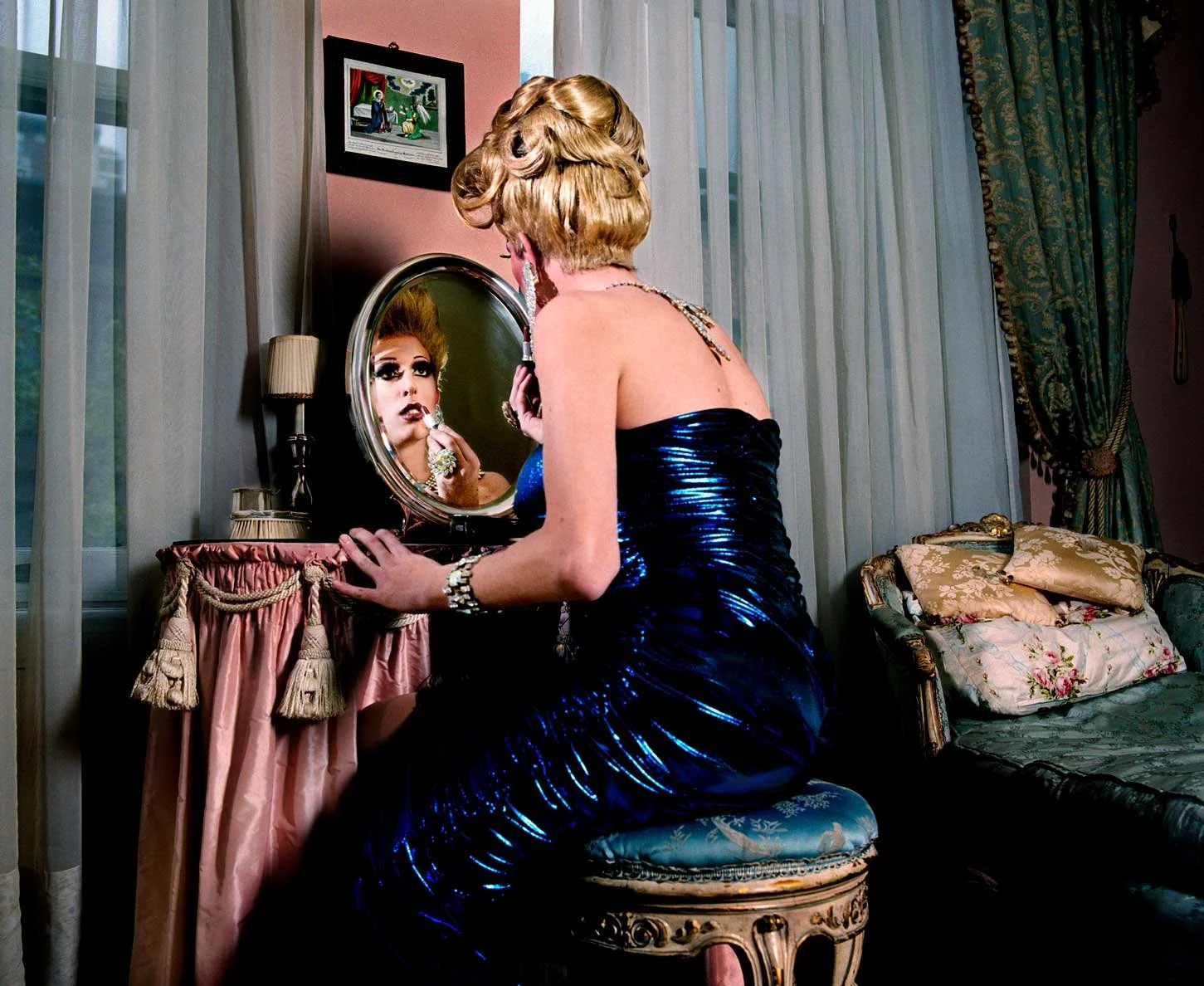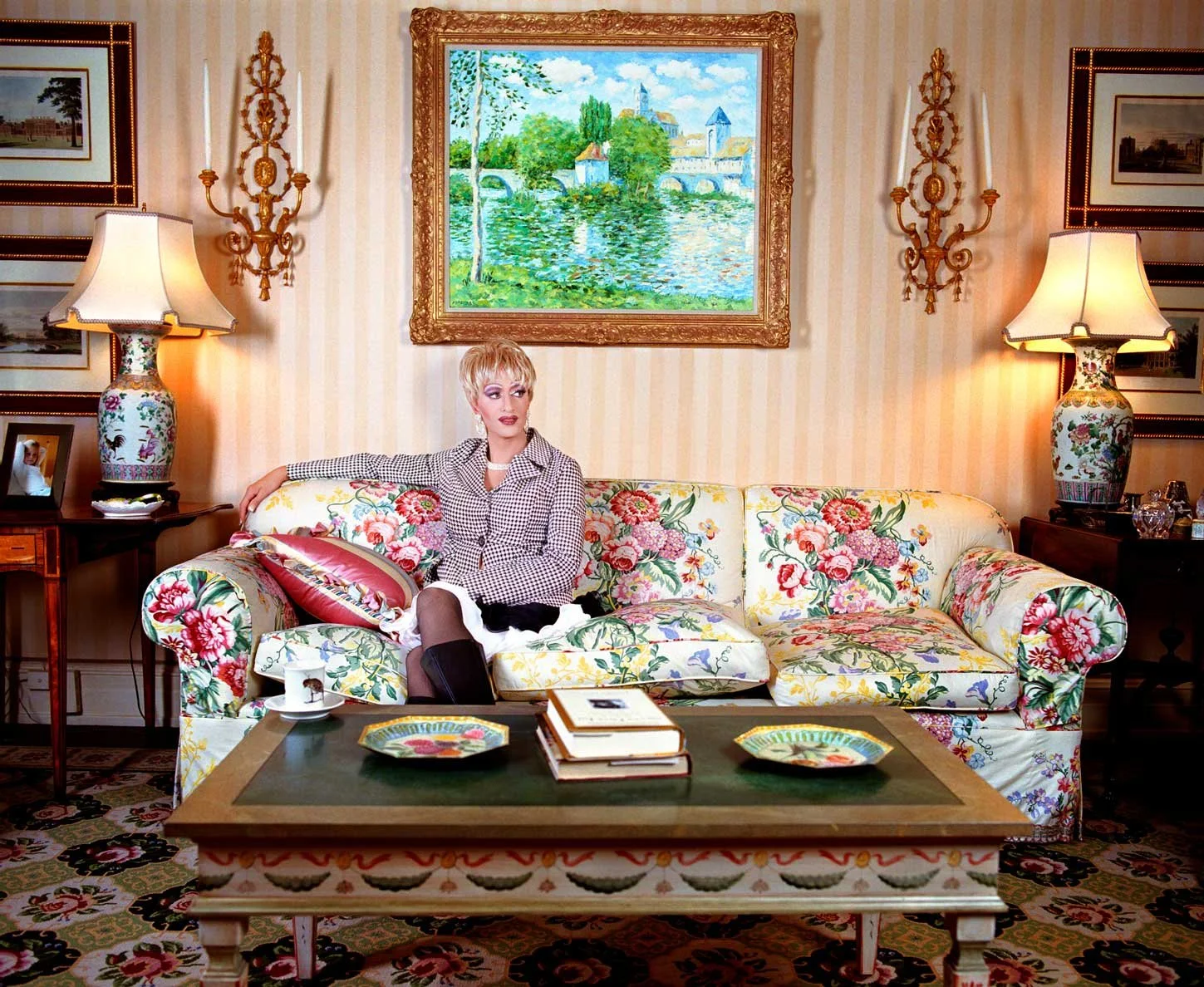Through Imitation
Through Imitation 1
Through Imitation 13
Through Imitation 11
Through Imitation 6
Through Imitation 8
Through Imitation 12
Through Imitation 3
Through Imitation 4
Through Imitation explores the idea that identity and gender are products of cultural and social influences. By creating a spectacle of gender - gender as a performative act - drag queens Truly Fabu and Andorra Tette̩ challenge traditional conceptions.
Throughout our lives we imitate the individuals with whom we identify, often appropriating those traits, mannerisms, and qualities we most idealize. Judith Butler asserts that people are neither male nor female, but rather "perform" masculinity and femininity as cultural mores. Drag goes a step further, pulling back the veil of gender stereotypes and revealing the absence of an authentic and original sense of sex. Drag thus insists upon the artifice of the very notion of gender, challenging the gender-focused ideal of identification.
Truly Fabu and Andorra Tette were photographed in the upper class homes in which they were raised. Adopting the costumes and poses of the upper class, each subject appropriates the cultural stereotypes of the world in which they grew-up. At first glance the images look like the photographs traditionally shown in Town and Country Magazine; however, as one looks more closely, the flipping of both gender and of conventional notions of reality, become more apparent. This serves to highlight the artifice that is present not only in the performance of the drag queens themselves, but also in the imitation of the upper-class social stereotype.


